Artificial intelligence (AI) is the process of teaching a computer to carry out tasks that typically only a human brain could do, but there is much more to it that trying to crunch numbers on a computer.
Artificial intelligence is everywhere, from the robots manufacturing cars in factories to the smartphone in your pocket, and understanding what AI actually is will give you a better understanding of the technology that surrounds us.
Professor Mark Lee is a computer scientist at Aberystwyth University. His new book, How to Grow a Robot, is all about how to design robots and artificial intelligence so that they are more social, more friendly, more playful – more human.
Whether you’re a beginner or deep into all things AI, as an expert in artificial intelligence, Mark’s pick of science books about machine learning and intelligent algorithms will have you thinking in ones and zeros in no time.
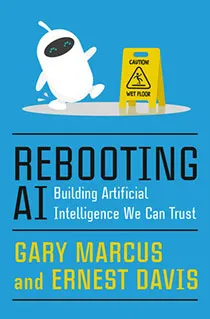
Rebooting AI: Building Artificial Intelligence We Can Trust
Gary Marcus and Ernest Davis
Penguin Random House
This book spells out the growing worries about the safety and reliability of modern AI, especially big data and deep learning. This is the same motivation for my new book and I was greatly encouraged to read this theme from a different but complementary viewpoint.
AI has become very powerful but, if it is to become trustworthy, it must be able to explain itself, understand the world, and be able to contemplate the consequences of its own actions. This needs what Marcus and Davis call "deep understanding", and requires much more consideration of the human sciences.
I couldn’t agree more, my main difference is that I believe a body is essential for exploring the subjective understanding of objects, the environment, and other agents.
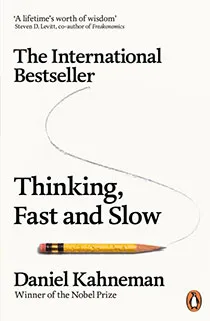
Thinking, fast and slow
Daniel Kahneman
Psychology is one of the human sciences that can tell us so much of relevance to AI. Nobel laureate Daniel Kahneman and his intellectual collaborator, the late Amos Tversky, studied the way humans reason and make decisions.
This very readable account contains stories and reflections on their findings and will convince you that the human mind functions in very different ways from the rational, logical processes we like to think we use.
While human irrationality probably won't be reproduced in AI, there is much to learn from psychologists, who know so much about human behaviour.

Human Compatible: AI and the Problem of Control
Stuart Russell
Many books on AI take a look into the field with a positive viewpoint, Stuart Russell's AI and the Problem of Control flips this, examining the risks we face with an expansion of AI. He examines how AI actually works and how it can improve our lives, but also why it is important to proceed very carefully.
Listing both the risks and benefits, Russell paints a full picture of the future of AI.
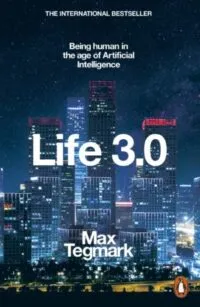
Life 3.0: Being Human in the Age of Artificial Intelligence
Max Tegmark
Another popular book examining the future of AI, Life 3.0 comes from the MIT professor Max Tegmark. He seperates the myths from the truths, getting to the route of the question of whether AI will improve or hinder our society. While this book is now a few years old, it remains just as relevant in today's society.
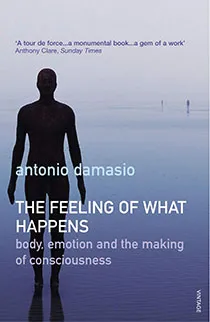
The feeling of what happens: Body and emotion in the making of Consciousness
Antonio Damasio
Vintage Books
This book comes from another very relevant discipline: neuroscience. Antonio Damasio sensitively and profoundly discusses the workings and relationships between feelings, mind, body, and emotions.
Despite some media hyperbole, we are not going to see machines become conscious any time soon, but Damasio puts this into perspective and in so doing heightens our sense of what it means to be human.
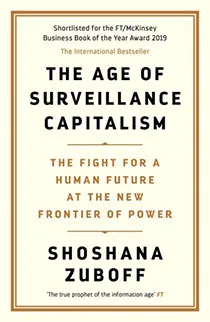
The Age of Surveillance Capitalism: The Fight for a Human Future at the New Frontier of Power
Shoshana Zuboff
There exists a serious concern that AI might deliver a dystopian future, but there is also a good argument that current computer technology is already a serious threat and could produce a global digital environment that is deeply damaging for humanity.
This book is an excellent exposition of that threat, showing how inequality and injustice are supported, even promoted, by modern computing technologies. This matters to all citizens, and all digital scientists must take on the responsibilities involved.
See more reading lists of science books:
- Five best physics books, according to Jim Al-Khalili
- 8 really, really big books about space
- Linguistics: 7 language science books to help you finally understand what comes out of your mouth
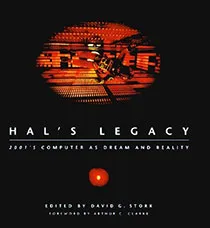
HAL’s legacy: 2001’s computer as dream and reality
Davis G. Stork
I find a bit of history is always enlightening, and this book reviews the AI abilities of the HAL 9000 computer in Stanley Kubrick’s classic 1968 film, 2001: A Space Odyssey.
Although the film was science fiction, the depiction of future AI was remarkably plausible and the book compares HAL's skills with the state of AI twenty years later.
The key failure of HAL was exactly what is still missing in AI; HAL was unable to contemplate the consequences of its own actions. This self-diagnosis, the element of self-doubt, is a key human characteristic.
How to Grow a Robot:Developing Human-Friendly, Social AI by Mark H. Lee is out now (£25, MIT Press).
